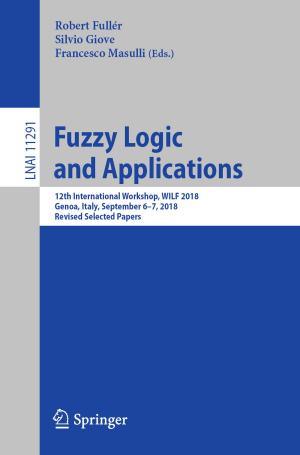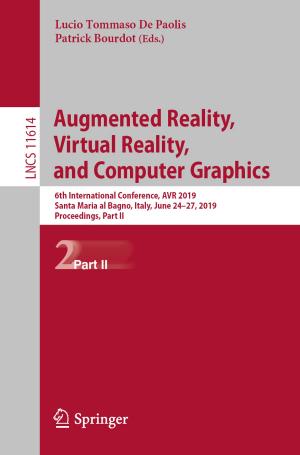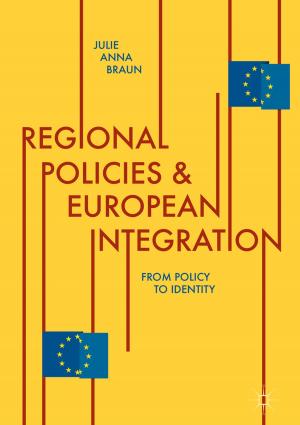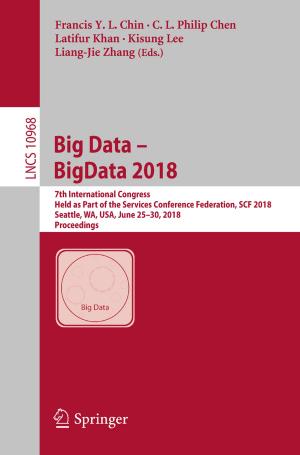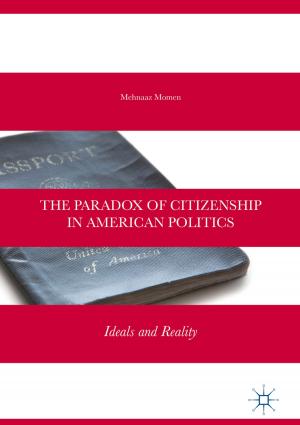Game Theoretic Analysis of Congestion, Safety and Security
Networks, Air Traffic and Emergency Departments
Nonfiction, Science & Nature, Technology, Quality Control, Computers, Networking & Communications, Computer Security| Author: | ISBN: | 9783319130095 | |
| Publisher: | Springer International Publishing | Publication: | December 31, 2014 |
| Imprint: | Springer | Language: | English |
| Author: | |
| ISBN: | 9783319130095 |
| Publisher: | Springer International Publishing |
| Publication: | December 31, 2014 |
| Imprint: | Springer |
| Language: | English |
Maximizing reader insights into the roles of intelligent agents in networks, air traffic and emergency departments, this volume focuses on congestion in systems where safety and security are at stake, devoting special attention to applying game theoretic analysis of congestion to: protocols in wired and wireless networks; power generation, air transportation and emergency department overcrowding.
Reviewing exhaustively the key recent research into the interactions between game theory, excessive crowding, and safety and security elements, this book establishes a new research angle by illustrating linkages between the different research approaches and serves to lay the foundations for subsequent analysis.
Congestion (excessive crowding) is defined in this work as all kinds of flows; e.g., road/sea/air traffic, people, data, information, water, electricity, and organisms. Analysing systems where congestion occurs – which may be in parallel, series, interlinked, or interdependent, with flows one way or both ways – this book puts forward new congestion models, breaking new ground by introducing game theory and safety/security into proceedings.
Addressing the multiple actors who may hold different concerns regarding system reliability; e.g. one or several terrorists, a government, various local or regional government agencies, or others with stakes for or against system reliability, this book describes how governments and authorities may have the tools to handle congestion, but that these tools need to be improved whilst additionally ensuring safety and security against various threats.
This game-theoretic analysis sets this two volume book apart from the current congestion literature and ensures that the work will be of use to postgraduates, researchers, 3rd/4th-year undergraduates, policy makers, and practitioners.
Maximizing reader insights into the roles of intelligent agents in networks, air traffic and emergency departments, this volume focuses on congestion in systems where safety and security are at stake, devoting special attention to applying game theoretic analysis of congestion to: protocols in wired and wireless networks; power generation, air transportation and emergency department overcrowding.
Reviewing exhaustively the key recent research into the interactions between game theory, excessive crowding, and safety and security elements, this book establishes a new research angle by illustrating linkages between the different research approaches and serves to lay the foundations for subsequent analysis.
Congestion (excessive crowding) is defined in this work as all kinds of flows; e.g., road/sea/air traffic, people, data, information, water, electricity, and organisms. Analysing systems where congestion occurs – which may be in parallel, series, interlinked, or interdependent, with flows one way or both ways – this book puts forward new congestion models, breaking new ground by introducing game theory and safety/security into proceedings.
Addressing the multiple actors who may hold different concerns regarding system reliability; e.g. one or several terrorists, a government, various local or regional government agencies, or others with stakes for or against system reliability, this book describes how governments and authorities may have the tools to handle congestion, but that these tools need to be improved whilst additionally ensuring safety and security against various threats.
This game-theoretic analysis sets this two volume book apart from the current congestion literature and ensures that the work will be of use to postgraduates, researchers, 3rd/4th-year undergraduates, policy makers, and practitioners.


